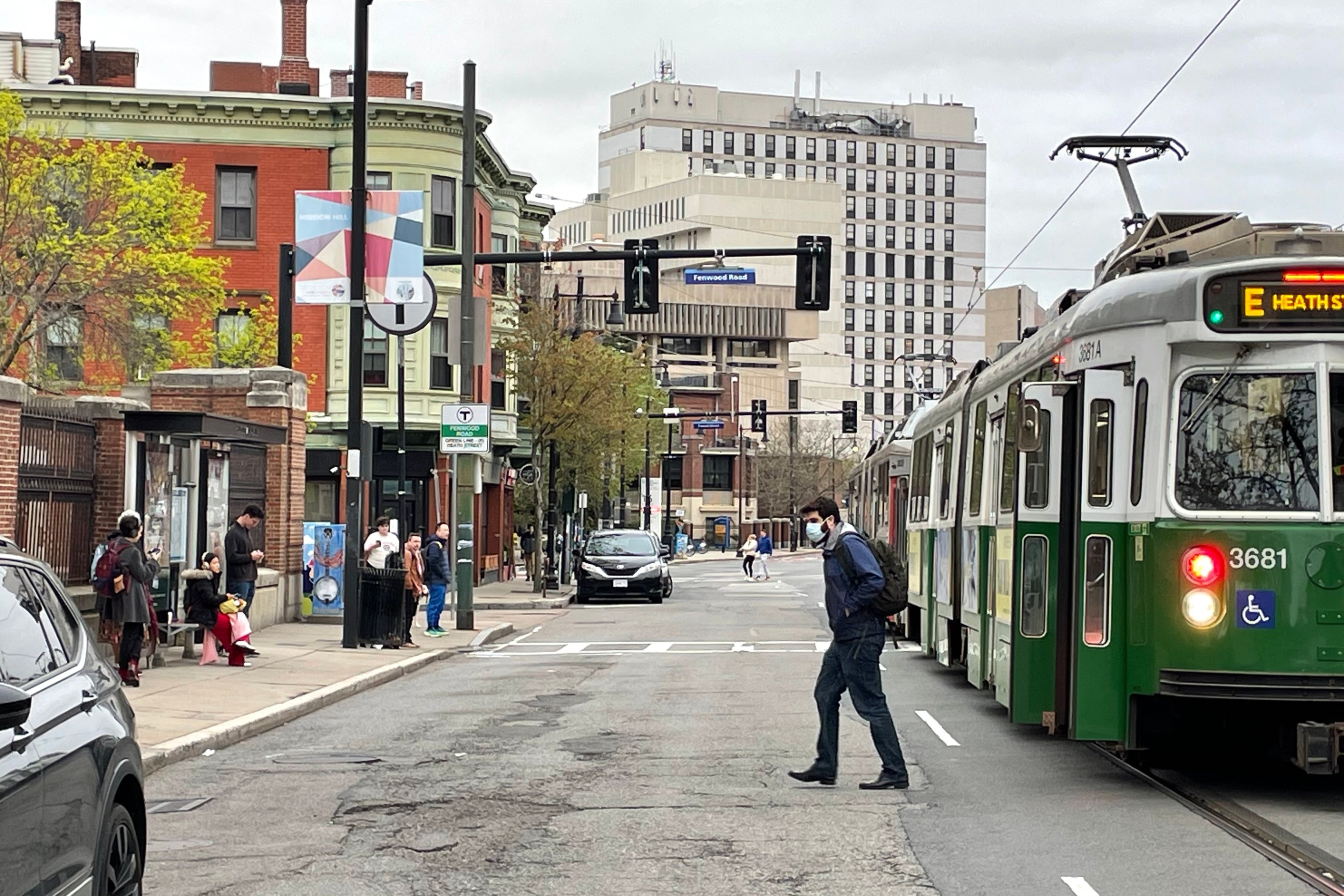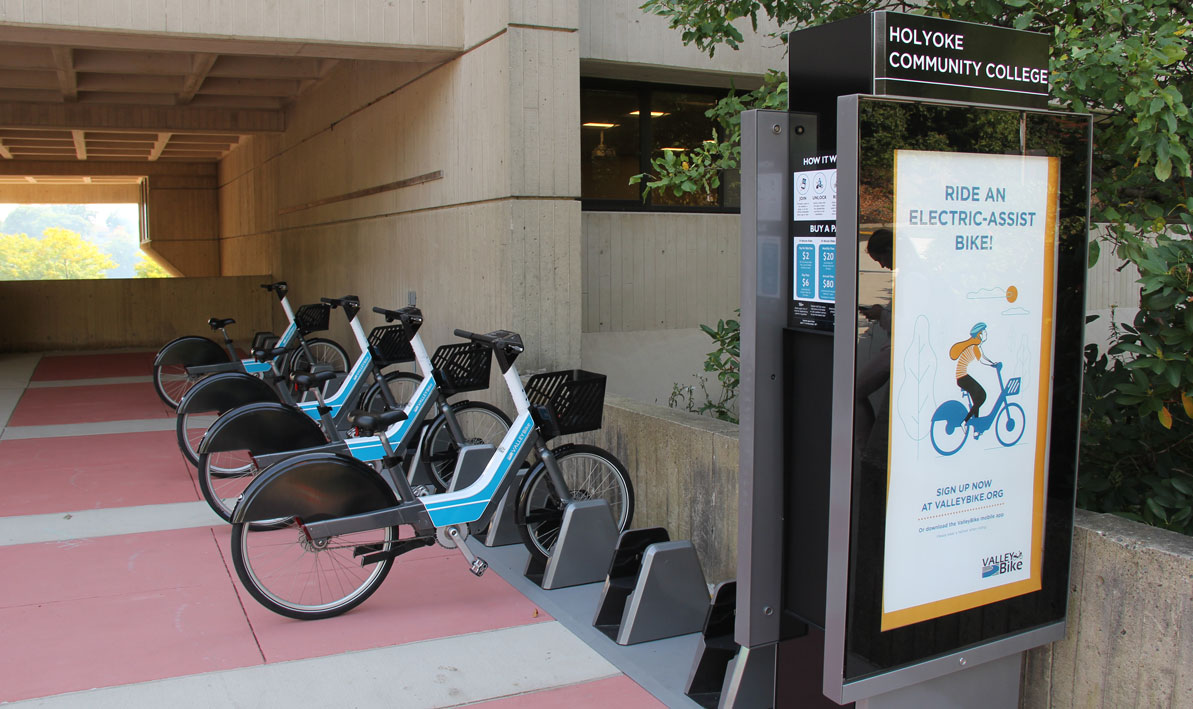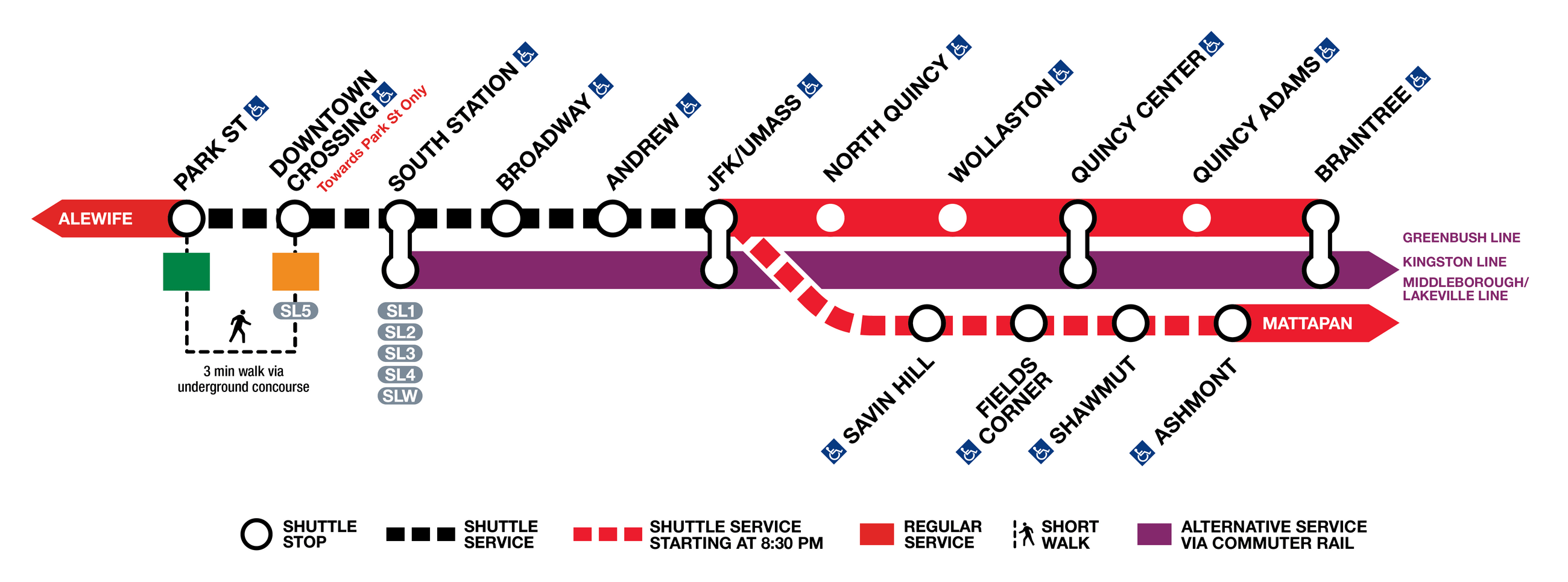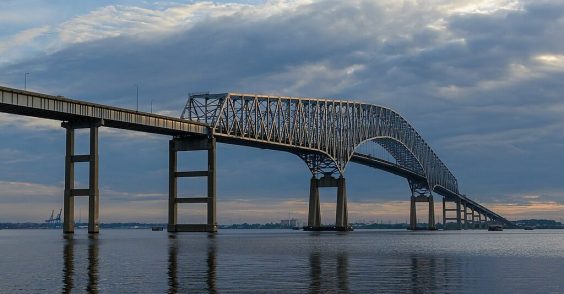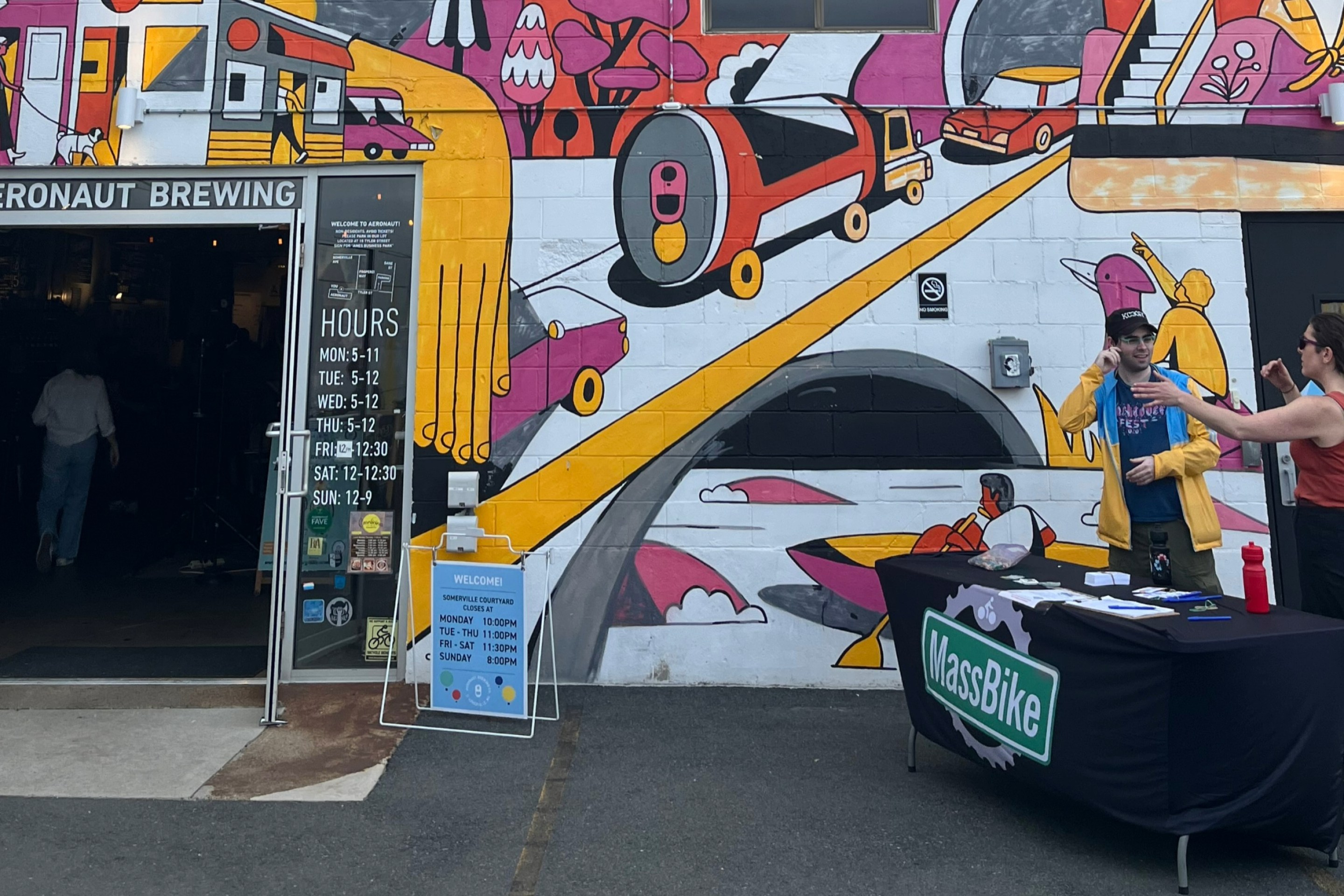The WRTA’s Fare-Free Bus Experiment Was Popular, But Won’t Last Without Funding
9:25 AM EDT on May 7, 2021
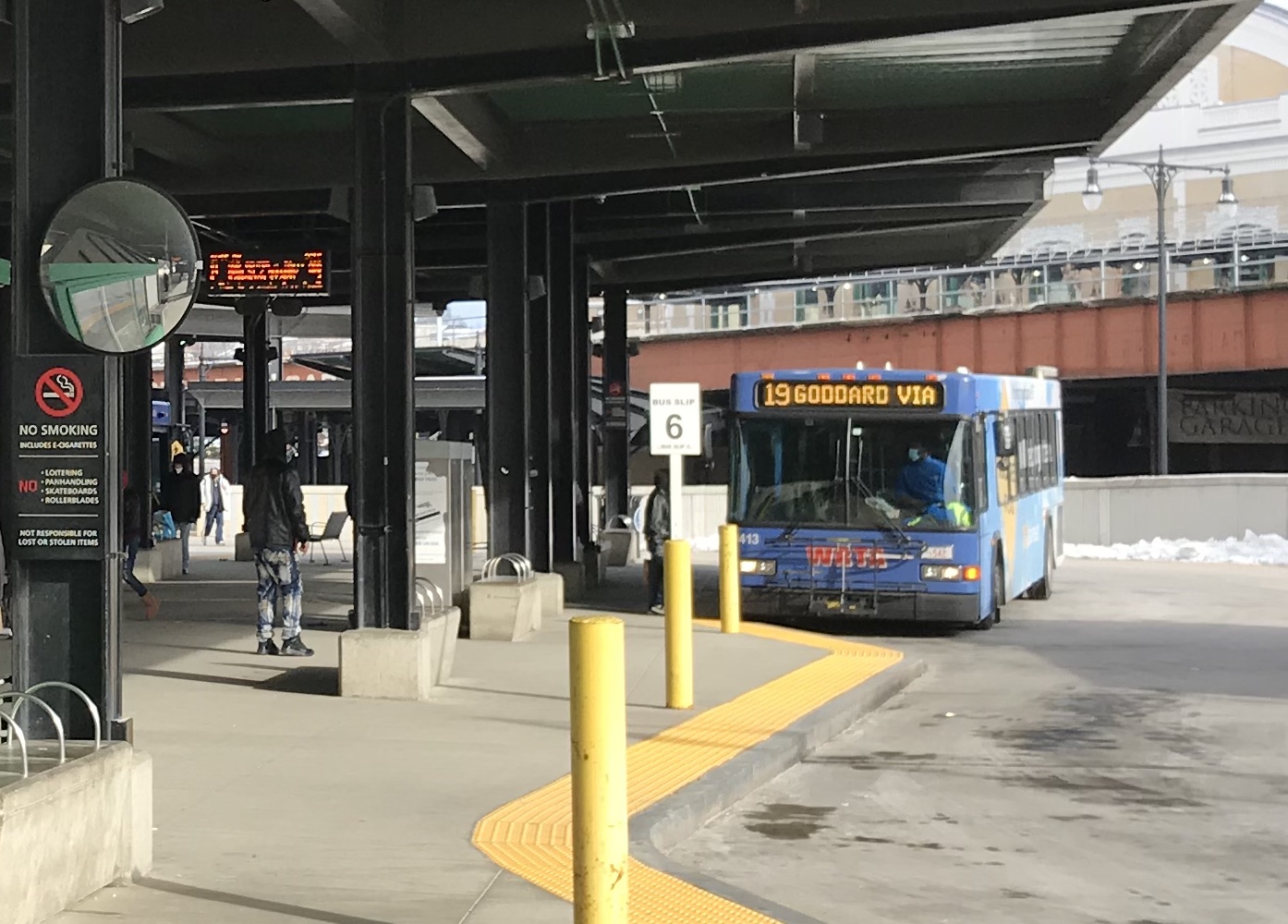
The WRTA’s downtown bus hub, next to Worcester’s Union Station.
Worcester's public transit system was able to retain a significantly higher share of ridership during the pandemic relative to other public transit agencies in the Commonwealth, and a StreetsblogMASS analysis of ridership data suggests that its fare-free policy, which is expected to expire at the end of June, may be a key factor in the agency's success.
According to data from the Federal Transit Administration's National Transit Database, the Worcester Regional Transit Authority (WRTA) served 153,299 bus trips in February 2021, the last month for which data is available.
That's about 63 percent of the WRTA's typical pre-pandemic monthly ridership (about a quarter-million monthly rides). It's a big decline, but one that still puts it ahead of the Commonwealth's other transit agencies, where bus ridership has been between 33 and 40 percent of pre-pandemic levels:
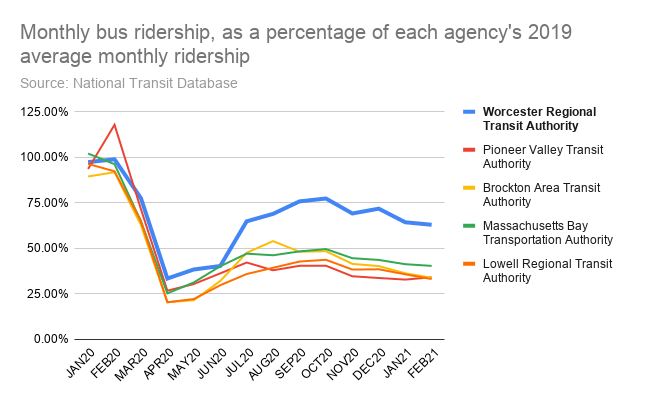
The WRTA's ridership trends had been tracking much more closely with other agencies' through the spring of 2020, when the pandemic's most severe lockdowns were in effect and most transit agencies in the state had suspended fare collection on buses.
In June, for instance, bus ridership at the MBTA and the WRTA were both around 40 percent of each agency's pre-pandemic volumes.
But by July, ridership on the WRTA began recovering at a much faster rate relative to its peers.
One likely factor: while the MBTA and other regional transit authorities began collecting fares again in July and August of 2020, the WRTA has remained free to ride to this day.
As we've reported previously, lower-income frontline service workers who haven't had the option of working from home have remained reliant on transit service throughout the pandemic.
Demographic data suggest that Worcester has a relatively high proportion of frontline workers, as do other "gateway cities" like Lowell and Brockton.
The WRTA's higher levels of transit ridership, relative to those peer cities, suggest that its fare-free policies may be especially helpful to frontline workers whose travel decisions are more sensitive to fare costs.
Pre-pandemic research from MIT found that low-income transit riders who only paid half price for transit fares took, on average, about 30% more trips than a control group that paid full price.
The data also affirm arguments from a pre-pandemic research brief from Worcester Regional Research Bureau, which galvanized advocacy for a fare-free bus system with its May 2019 "The Implications of a Fare-Free WRTA" report.
Eliminating fares to attract more riders on existing bus routes "reduces per-passenger costs, making systems more cost-efficient," wrote the Research Bureau.
In spite of that track record, and widespread political support – fare-free advocacy has united Worcester's Chamber of Commerce, environmental groups, and numerous elected officials – Worcester's fare-free bus experiment looks likely to end on June 30.
In an April 29 board meeting, WRTA board members approved a 2022 budget, effective on July 1, that would rely on revenues from reinstated fare collection.
Fare-free advocates had hoped that the agency's remaining $43 million in CARES Act relief funding could keep the fare-free policies going for several more years (pre-pandemic, the WRTA received about $3 million a year in fare revenue – which doesn't count the increased operational costs the agency incurs from fare collection).
Instead, WRTA will use its remaining CARES Act funds to expand bus service in the aftermath of the pandemic.
"All of the fare-free advocates also want better service," Dennis Lipka, WRTA's administrator, told StreetsblogMASS in a recent phone conversation. "We think the way to get the service improved is by increasing frequency, expanding weekend service... We are committed to making sure people feel we’re rock-solid reliable and we’re gonna be there all the time.”
But the momentum for fare-free transit remains strong. Thanks to Worcester's experiment, interest in fare-free transit is stronger than ever, and several bills at the State House and in Washington have been drafted to help more agencies follow Worcester's example.
At last week's WRTA Advisory Board meeting, board member and Worcester City Councilor Gary Rosen promised that he would continue to advocate for a fare-free system.
“If (the funding) isn't there now, it’s coming," said Rosen. "I know there’s other things to spend it on, but I don’t think anything is as important as zero fare.”
Stay in touch
Sign up for our free newsletter
